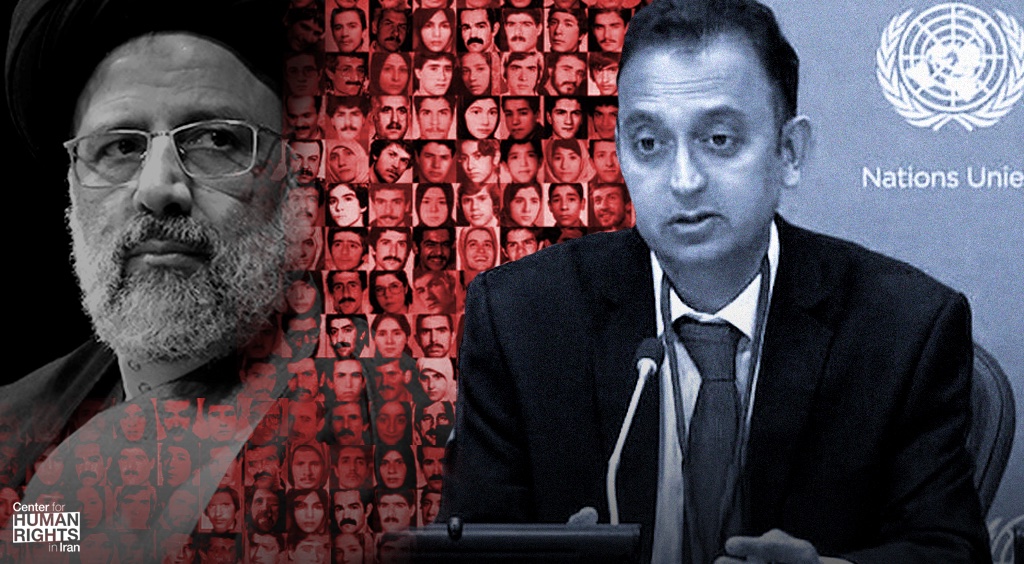
Top UN Expert Ready to Share Testimonies, Evidence for Impartial Inquiry
July 6, 2021 – The UN Human Rights Council should act upon the call by UN Special Rapporteur Javaid Rehman for an impartial inquiry into the state-ordered mass executions of thousands of prisoners in Iran in 1988 and the role President-elect Ebrahim Raisi played in those executions.
“We strongly support the rapporteur’s call for an independent inquiry as an important step towards delivering answers and justice to the victims’ families,” said Hadi Ghaemi, executive director of the Center for Human Rights in Iran (CHRI).
“The UN Human Rights Council and member states as well as the Office of the High Commissioner should closely examine the testimonies and evidence collected by Mr. Rehman’s office, investigate the role played by Raisi, and allow the victims’ families to be heard,” said Ghaemi.
Rehman, the top UN expert on Iran, called for the probe on June 29, 2021, ten days after Raisi was elected president of the Islamic Republic of Iran following record-low voter turnout in the republic’s history after almost all other candidates were disqualified by the Guardian Council.
“I think it is time and it’s very important now that Mr. Raisi is the president that we start investigating what happened in 1988 and the role of individuals,” Rehman told Reuters from London, where he teaches Islamic law and international law.
Without such as investigation, he added, “we will have very serious concerns about this president and the role, the reported role, he has played historically in those executions.” Rehman stated his office was ready to share the testimonies and evidence it had collected if the UN Human Rights Council or other body sets up an impartial inquiry.
In 1988, Raisi was appointed to a four-man “death committee” by then-Supreme Leader Ruhollah Khomeini, which paved the way for at least 4,500-5,000 prisoners to be extra judicially executed and buried in unmarked graves, based on the committee’s determination of their “loyalty” to the newly established Islamic Republic. These prisoners had already been tried and were serving their issued prison sentences.
No one in Iran has ever been held accountable for the killings. Instead, state agents have harassed and threatened victims’ relatives for demanding investigations and trying to locate their loved ones’ remains, while the death committee members were appointed to various high-level government positions in the ensuing years.
The UN expert noted that “we have concerns that there is again a policy to actually destroy the graves or there may be some activity to destroy evidence of mass graves,” adding that “there is a widespread and systemic impunity in the country for gross violations of human rights, both historically in the past as well as in the present.”
UN human rights experts’ call for accountability regarding the 1988 mass executions was communicated to the Iranian government in September 2020.
In May 2021 the call for an international investigation into the killings was endorsed by more than 150 Nobel laureates and former heads of state and government, as well as former senior UN officials.
Iranian officials have either refused to acknowledge the mass atrocities or, in the case of President-elect Raisi, defended them.
When asked about the killings, Raisi told reporters: “If a judge, a prosecutor has defended the security of the people, he should be praised … I am proud to have defended human rights in every position I have held so far.”
“For decades, Iranian officials have worked to silence calls for answers regarding where the executed prisoners were buried and quash demands for accountability through threats and intimidation against the victims’ families,” said Ghaemi.
“Yet the families persisted and compiled evidence to be examined by the UN,” he added. “It’s never too late to work towards justice.”
